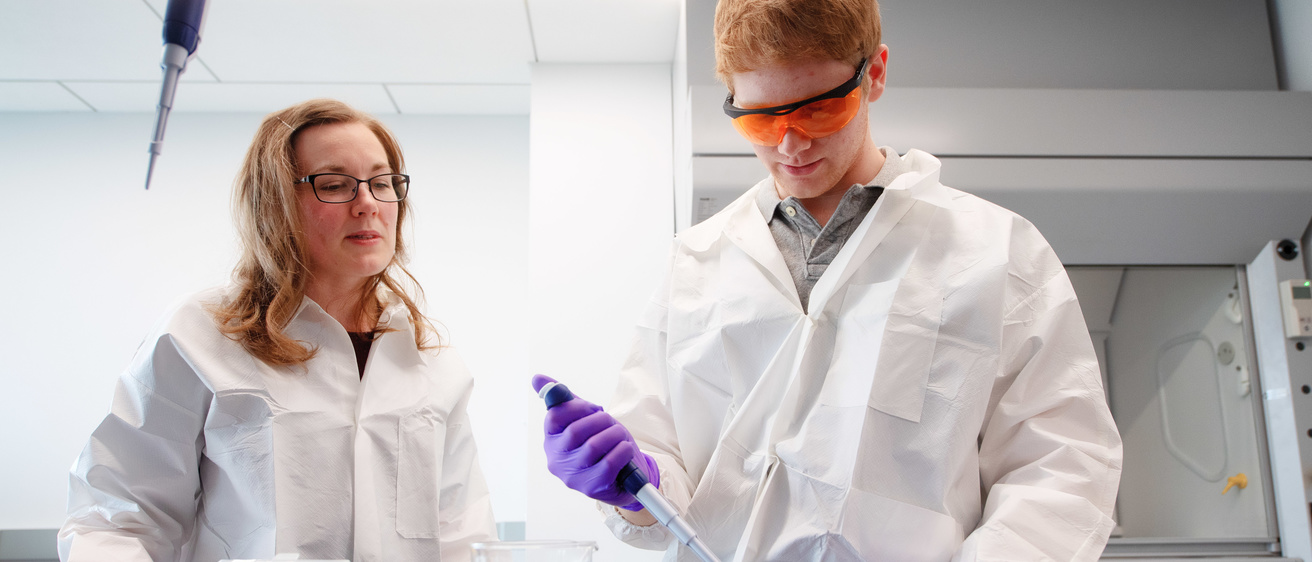New innovations in 3D printing have seen the use of light-based 3D printing for use in biology and medicine. Kristan Worthington, an assistant professor in the Roy J. Carver Department of Biomedical Engineering at the University of Iowa, has recently been awarded a prestigious National Science Foundation CAREER grant to continue her work in this emerging area. Worthington is also a faculty affiliate with the Iowa Technology Institute, a research arm of the College of Engineering.
Light-based 3D printing requires a molecule called an initiator which uses light to convert liquids into solids. Currently, many of these initiators are sourced from non-sustainable materials which can have a negative impact on the environment and the human body. Worthington is exploring how alternative initiator molecules can be developed, possibly from natural sources such as plants.
“As 3D printing increases in its use and applications, we want to find new ways to make light-based 3D printing a more sustainable process,” said Worthington. “Increasingly, light-based 3D printing is being use in research for medical devices and implants, so we want to minimize the potential health impacts of this important innovation.”
Additionally, Worthington is conducting research that will bridge the gaps between 3D printing at small and large scales. Typically, 3D printing can be used to develop materials with fine features or bigger materials that do not have as many precise features. It is rare that systems would be able to produce both kinds of materials on a single platform.
Worthington’s five-year grant will also support the integration of this research into the biomedical engineering curriculum, the research engagement of high school students from eastern Iowa communities, and travel support to disseminate results. High school student recruitment efforts will be focused on the Cedar Rapids, Waterloo, and Davenport communities as well as at the Eastern Iowa Science and Engineering Fair.
“I am excited about the research and educational components of this grant,” said Worthington. “Not only will the research have the potential to improve quality of life through advances in 3D printing for medicine, but we will also have the opportunity to showcase this work for young people whose interest in STEM may propel them into enrolling in the UI College of Engineering.”
For more information on Worthington’s project, visit the project website.
